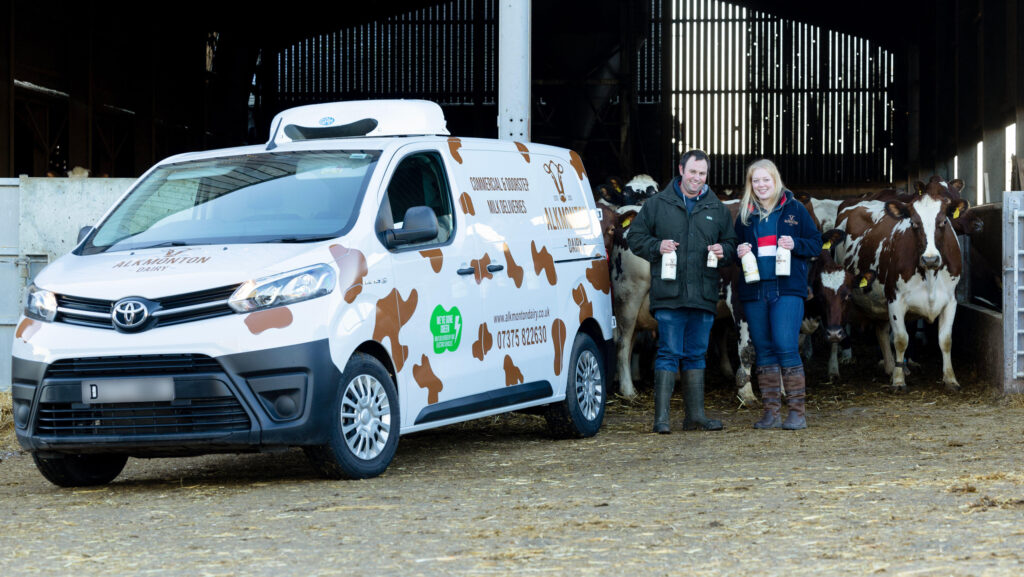Electric vehicles for farm businesses – tax considerations
 © Alamy Stock Photo/Rod Kirkpatrick
© Alamy Stock Photo/Rod Kirkpatrick Electric vehicles (EVs) won’t suit every farm business but for some, especially diversified operations, they can not only reduce running costs but also help raise brand awareness and environmental credentials.
There are several tax issues to take into consideration.
“If an EV is a viable option for your business, understanding the tax position will help in deciding the best time to buy,” says Nicholas Smail, a partner with accountant Hazlewoods.
See also: How farms can help meet electric vehicle charging demands
Capital allowances
For full EVs, a first year allowance (FYA) can be claimed on 100% of the cost of a new and unused car in the year of purchase.
This gives a significant upfront cash flow advantage for the business, he points out. However, this is only a cash flow timing difference.
“When the vehicle is eventually sold, there will be an adjustment to ensure that the capital allowances claimed match the actual depreciation (loss) on the vehicle.”
The 100% FYA for fully electric vehicles compares with the writing down rates available on non-electric cars of either 18% or 6% of the purchase price of the asset, on a reducing balance basis, as for hybrid cars.
Leasing
“Some people may prefer to lease a vehicle, in which case the lease payments are allowable as a business expense,” says Nicholas.
However, in the case of leased cars, those with carbon dioxide emissions of 50g/km or more have 15% of the lease cost disallowed.
Budget warning
While the new Government is expected to look favourably on and promote the use of electric vehicles, its first Budget will be delivered in the coming autumn, which could bring changes to tax rates and allowances.
Road tax
The road tax charges for cars registered on or after 1 April 2024 depend on their carbon dioxide emissions, with three new tax bands introduced from that point – zero, standard and premium.
Full EVs are currently exempt from road tax. Others pay an emissions-related “first year rate” of anywhere from £10 to £2,745, followed by a standard rate thereafter of £190 a year.
However, new cars with a list price of more than £40,000 pay an additional rate of £410 a year starting from the second year after first registration.
From next year, new full EV cars will be subject to a first-year tax of £10, then the standard £190 rate in the following years. They will also be brought into the net of the £40,000 list price premium car tax annual fee of £410.
For those who operate as sole traders and in partnerships, any private use of a business vehicle by the sole trader or partners restricts the running costs and capital allowances which can be claimed as a business expense.
Benefit in kind
Where a director or employee is provided with a car owned by the business, this is a taxable benefit in kind, with a monetary value for this attributed to an individual’s taxable earnings.
The benefit in kind charge for fully electric and best performing hybrid cars car is currently 2% of the list price, while higher-emitting cars are charged at up to 37% of list price.
The benefit in kind rate for EVs is set to rise to 3% next year, climbing one percentage point each year thereafter.
If an employer provides a charging point at an employee’s home, and is providing the car, the charging point will not be a benefit in kind.
Electric vans
Fully electric vans carry a zero benefit in kind charge for employees’ private use. However, some vehicles which it might be assumed qualify as vans may not, in fact, be classed as such, so it is worth checking before any buying decision.
HMRC defines a van as a mechanically propelled road vehicle which is a goods vehicle with a design weight not exceeding 3,500kg.
ATVs and UTVs
As farm vehicles, electric ATVs and UTVs would qualify under the annual investment allowance, currently set at £1m a year for each business, and allowing 100% of the cost in the year of purchase.
Charge point grants for business
A government grant will pay up to 75% of the total cost of the purchase and installation of EV charge points (including VAT), capped at a maximum of £350 per socket.
This is available through the Workplace Charging Scheme. More information can be found at bit.ly/workplace-charging-scheme
Hybrid cars
The capital allowance on new hybrid vehicles depends on the vehicle emissions. Hybrids are allocated to a capital allowances pool, with an emissions threshold currently at 50g/km for cars bought on or after 1 April 2021.
Expenditure on a car within this emissions threshold is allocated to the main rate pool which attracts an 18% writing down allowance (WDA) each year, while cars exceeding the threshold are allocated to the special rate pool at 6% WDA.
Again, there may be a charge when the vehicle is sold or part-exchanged.
